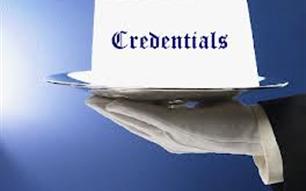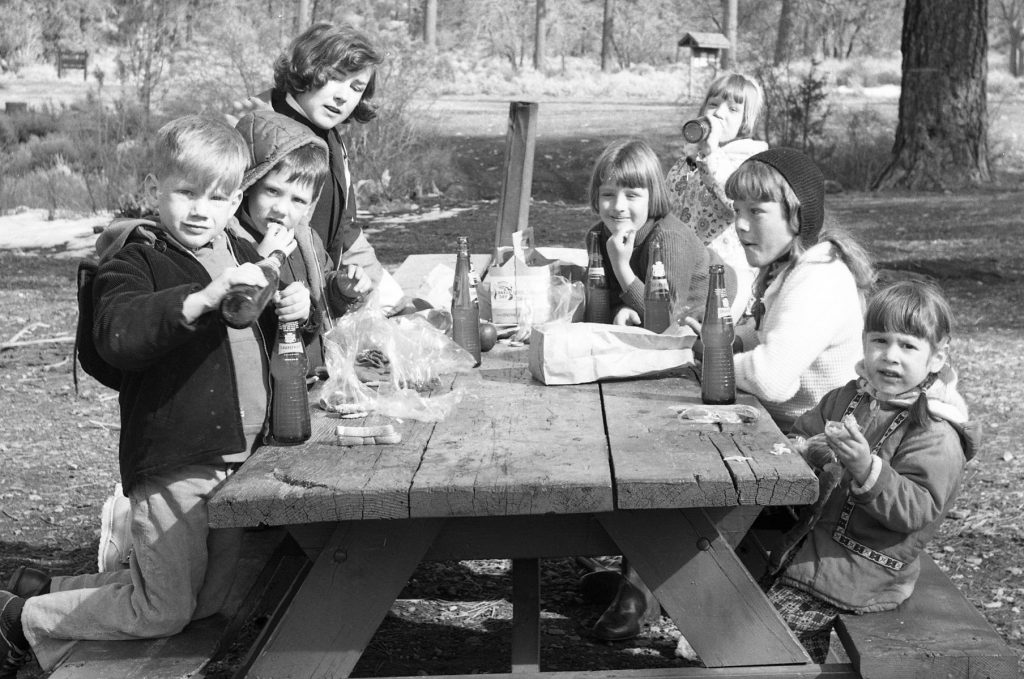The last of my reflections (I swear!) from teaching “Storytelling and Communicating for Change” last fall in the University of Vermont Masters of Leadership for Sustainability program. See my previous posts here.
Who are you?
I was at a TEDx event last year and the first speaker (who organized the event) didn’t introduce herself and just launched into her welcome. I was miffed and disappointed. Some would say this is a small thing, but by not introducing herself, she reinforced her own status, i.e. “everyone should know who I am.” That is antithetical to inclusive communications.
Within institutions, it might be necessary to drop our credentials into conversation or a presentation with upper-up’s, to help us communicate from a confident (yet not cocky) place that is ultimately more grounded in our experience. Because of the dominant cultural bias towards “objectivity” and positional power and authority, your credentials signal important aspects of so-called legitimacy to people who don’t know you.
At the same time, I also believe it’s possible to claim one’s “expertise” in a way that communicates a profound commitment to learning. No one expects someone who has three years experience, to know as much as the person with 20 years experience.

Knowing when to (and when not to) wield our credentials is important, but when speaking formally with external audiences, I believe it’s a person’s responsibility to introduce yourself and help people situate you to the context. It invites people to trust you and want to listen. I want no one to minimize their strength or contributions, and I want no one to assume they have the right to command people’s attention.
If you aren’t confident in your skills and lived experience, folks can’t trust you. We honor people’s dignity when we ask them for that trust rather than assuming we have it.
Why are you?
My personal do-gooder story contains “incredible aliveness, deep struggle, pain, and confusion.” I suspect there are many other “changemakers” who might describe their stories that way as well.
So I have some good news and bad news for you. Let me start with the bad: Scary and vulnerable as it may seem, we need more people to tell their stories, the “why” behind what they do. Because the story we have about ourselves is basically the river that flows underneath everything we do. In it flows our deepest motivations – often unconscious – that push us forward, that present obstacles or dictates our reactions to obstacles, that keeps us going. When we share our story, it invites every single person who hears it to think about their own story as well…and thus we all have a water source to share. Stories are where we go to liberate, to heal, to build community. They are powerful. Oh wait, that’s good news!
And here’s the other good news! We are free – right now and always – to tell as much or as little of our story as we want. We can share snippets, or the whole long thing. We can go deep into it, or tell is as if it were something emotionally separate from ourselves. Your story is always under your control.
The other good news is that when you sense you have “mastery” over where you are with your story right now (because it does change as you change), people will understand it. You will give them permission to have whatever experience they’ll have and you can know that you’ll be fine, regardless of their reaction. Each time, you will learn to trust that that story, and the transparency about your motivations and passions and experiences that goes with it will invite people in. When you “own” your story, you are valuing your own voice, and asking other people to do the same. Many of us are on a journey to claim our space and our rights. When we claim our stories (as well as our expertise), we affirm our self-worth and our interconnectedness.
Also, no one’s story is written or shared alone, which is why I’m all for more blurred lines between our professional, personal, and spiritual lives.
For my fellow white women
I am asking us (myself included) to risk more in telling your story of reckoning with racism: What feelings and realizations have been evoked as we’ve learned more? Personally, my journey has brought up shame, sadness, shock, rage, grief. Did I say shame? And these are all really hard feelings to stay with. Everything in our society (along with my specific upbringing) taught me to avoid negative feelings and minimize their impact on others. Whiteness has left so many ill-equipped to talk about feelings, and this permeates every institution in our society.
Whiteness makes it hard to have any tough conversations – since everything is “supposed” to be easy and comfortable. When we share our stories with other white people, we allow people to be curious about what we’ve learned. Like any muscle, the more it is exercised, the easier it will become. (I promise.)
Even if our stories feel unfinished (because they always will be), visibilizing the specific changes we’re making to other white people (please don’t ask for a gold medal from people of color) honors our own humanity. Humans make mistake, and generations before us have been part of grave atrocities.

We have to do more than offer seats at the table. We have to look at where the table is, how the table is set, and who built the table in the first place. We might find that the table would actually serve collective liberation by becoming firewood. ~Lauren Akin
I still don’t know how white women can or will be included in the journey of collective liberation in the long-term. But to be given the opportunity to make things more equitable, to use our privilege for good now, is a duty and also a gift – an invitation to go deeper into our own humanity.
Leaders, critics, and friends
Here’s the deal: as leaders, we will get criticized – by all kinds of people, all the time. That’s the part of leadership I’m making my own peace with right now. It’s ultimately about trusting myself, and releasing the need to please people, and grounding in my truth, which will and should continue to evolve! That means any criticism/feedback I receive are simply a blessing on the learning journey if I can see it that way.
The circle of “friendly critics” or “critical friends” that can offer me feedback as I use my voice and have more courageous conversations is invaluable to me. Their presence means I’m not alone in figuring it all out on this never-ending learning journey. They remind me that every time I stretch my voice, my head, heart, and gut will offer me the information I most need.
Our WEIRD (Western, Educated, Industrialized, Rich, Democratic) lives means we put lots of value on words, but in reality, they come and go. What’s important is that we continue to learn and adapt.
Turns out what makes us compassionate friends and effective leaders, is also what can make us good communicators.
***
Related Posts
The only way to fight racism in our sector
My conflicted relationship to “expertise”
When the fox guards the hen house
Be the space: On hosting a conversation on decolonising development


Interesting. But whose job is it to introduce speakers at public events?
Often it’s the public event organizers who introduce speakers. Agree it’s their job to share a speaker’s credentials. However, different people have different ideas of what makes a person “legitimate.” When we assume a person’s credentials or position makes them an “expert,” the dominant culture’s values are being upheld. Question is: who gets to be recognized as an “expert” or an authority? I wrote a bit more about this here: http://www.how-matters.org/2018/02/04/my-conflicted-relationship-to-expertise/